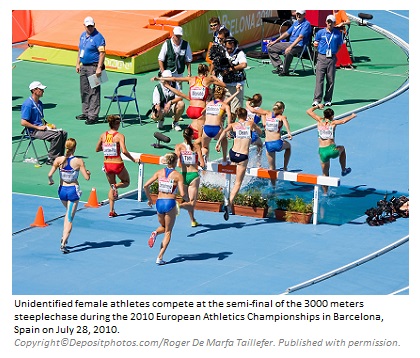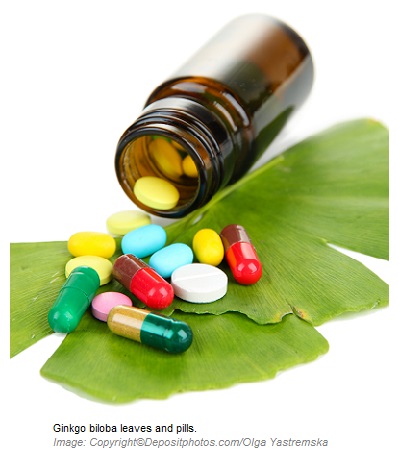 purposes for years. The active constituents of gingko biloba are flavonoids (quercetin and myricetin) and terpenoids (ginkgolides and bilobalides).
purposes for years. The active constituents of gingko biloba are flavonoids (quercetin and myricetin) and terpenoids (ginkgolides and bilobalides).Athletic Benefits of Ginkgo Biloba:
The flavonoids in ginkgo biloba improve blood circulation at the capillary levels, which affects athletic performance via three mechanisms: (a) increased blood flow to the muscles helps build muscles easier, (2) increased blood flow improves oxygenation, and (3) increased blood flow to the brain enhances mental alertness.
Potential athletic benefits are:
- A potent antioxidant.
- Supports muscle building.
- Improves oxygenation to the muscles.
- Helps improve aerobic capacity.
- May increase athletic endurance.
- Improves concentration and mental alertness.
- May help prevent from mountain sickness (altitude sickness). See “Mountain Sickness” under the section of “Athletic Disorders”.
- Reduces oxidative damages resulted from exercise.
Non – Athletic Benefits of Ginkgo Biloba:
Ginkgo biloba may be beneficial in the following conditions:
- Erectile dysfunction.

- Schizophrenia.
- Depression.
- Vertigo.
- Asthma.
- Raynaud`s phenomenon.
- Meniere`s disease.
- Attention deficit disorder (ADD).
- Carpal tunnel syndrome (CTS).
- Tinnitus.
- Macular degeneration.
- Dementias, including Alzheimer’s disease.
- Poor memory.
- Glaucoma.
- Diabetes.
- Multiple sclerosis (MS).
- Stroke.
- Premenstrual syndrome (PMS).
- Peripheral occlusive artery disease.
Side Effects:
Ginkgo biloba shows a mild blood thinning effect by blocking platelet aggregation. Other potential side effects include stomach upset, headaches, dizziness, nausea, diarrhea, and skin allergic skin reactions.
Dosage and Interactions:
 Most available products have been standardized to contain 24 – 32% Flavonoids and 6 – 12% terpenoids. Ginkgo biloba is usually taken 120 – 480 mg daily.
Most available products have been standardized to contain 24 – 32% Flavonoids and 6 – 12% terpenoids. Ginkgo biloba is usually taken 120 – 480 mg daily.
Exercise caution when taking ginkgo biloba along with or in the following conditions:
- High doses of Omega – 3.
- Aspirin.
- Advil or any other non-steroidal anti-inflammatory drugs (NSAIDs).
- Anti – depressant medications.
- Anti – epileptic medications.
- Anti – diabetic medications.
- Medications for High blood pressure.
Ginkgo biloba should be avoided in the following conditions:
- Taking along with anticoagulants, for example, warfarin.
- Pregnancy and breastfeeding.
- Major surgeries (you should stop taking gingko biloba 2 -3 days before any scheduled major surgery or dental procedures).
- Epilepsy.

